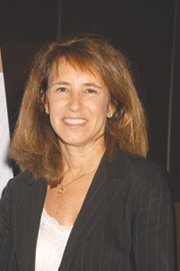KEYNOTE ADDRESS
 Early childhood education is the delivery of a comprehensive, enriched environment that supports the healthy development of children from birth to eight years of age. It develops the whole child, cognitively, socially, emotionally, and physically; ensures that children have the skills necessary to enter school ready to learn, and provides the foundation for future success.
Early childhood education is the delivery of a comprehensive, enriched environment that supports the healthy development of children from birth to eight years of age. It develops the whole child, cognitively, socially, emotionally, and physically; ensures that children have the skills necessary to enter school ready to learn, and provides the foundation for future success.
Recent research studies conducted by neuroscientists, economists, public policy experts and development psychologists endorse the vital importance of quality early childhood education for social development. They are unanimous that a child’s earliest experiences impact her ability to think, speak, learn, and establish relationships. This because it’s now well-established that 70 percent of brain development occurs within the first three years. Therefore the quality of early education and care has lasting impact on a child’s future success in school, workplace and subsequent economic well-being. Now it’s also well-established that it is far more difficult to build skills when there is a weak foundation of brain circuitry.
Nurturing relationships play a very important role in brain development in early childhood. A child’s healthy brain development depends on strong reciprocal relationships with key individuals in a child’s life — family members, caregivers, siblings — and adults’ responses to children’s verbal and non-verbal cues and requests for attention and information. Basic language and communication skills are formed during a child’s first three years.
A 1995 research study conducted in the US by Hart and Risley indicates that children who acquire language learning skills prior to the age of 16 months, are more likely to enrol in collegiate education than children who acquire them later. There is over-whelming evidence to indicate that professionally administered early childhood education programmes increase high school graduation rates and post-secondary school attendance; stimulate increased labour force participation and earnings; reduce child accidents and injuries; abate grade repetition; reduce crime and contact with the criminal justice system and result in the reduction of teen childbea-ring and improved pregnancy outcomes.
These conclusions are validated by a study conducted this year by the National Institute of Child Health and Human Development, USA of early child care and youth development, which indicates that high quality care predicted higher cognitive and academic achievement at age 15, and that more hours in care yielded slightly more risk taking and impulsivity. These broad conclusions are endorsed by Prof. James Heckman, the Nobel Prize winner economist of Chicago University, who says: “Rate of return to a dollar investment made while a person is young is higher than the rate of return to the same dollar made at a later age.”
However it’s important to bear in mind that while all ECE initiatives are beneficial, the quality of early education and child care makes all the difference. Among the key components of quality are children’s relationships with family members and other responsive adults which are essential to healthy brain development; provi-sion of developmentally appropriate curriculum which is the outcome of research-based teaching methods; qualified and engaged teachers; provision of safe, child-centred and language rich learning environments and ECE institutions which develop partnerships with parents through daily communication tools, parent conferences, and family events.
These key components of quality early childhood education are the norm in Knowledge Universe, the largest private provider of early childhood education in the United States with more than 1,700 centres in 39 states, plus D.C, serving 150,000 children daily through 30,000 educators. Moreover in 2007, in acknowledgment of Asia’s emer-gence as the world’s largest market for pre-school and K-12 education, Knowledge Universe moved its global headquarters to Singapore where it has promoted its Odyssey Global Pre-schools based on best practices from Singapore, the United States, Australia, and Reggio Emilia in Northern Italy to provide a rich Chinese learning environ-ment with both English and Mandarin speaking teachers.
Summing up I believe that:
• Children are our most valuable resource, and hold the key to our future;
• A child’s earliest experiences lay the foundation for her future development and lifetime achievement;
• Every child is unique. There is no one best approach to supporting every child’s development, but all depend on building relationships with key adults;
• Quality early childhood education can help overcome disparities in children’s home backgrounds and opportunities;
• The benefits of early childhood education not only impact an individual child, but society, nation, and the world.
(Dr. Elanna Yalow is the Portland-based vice chair of Knowledge Learning Corporation, USA and vice president of Knowledge Universe)